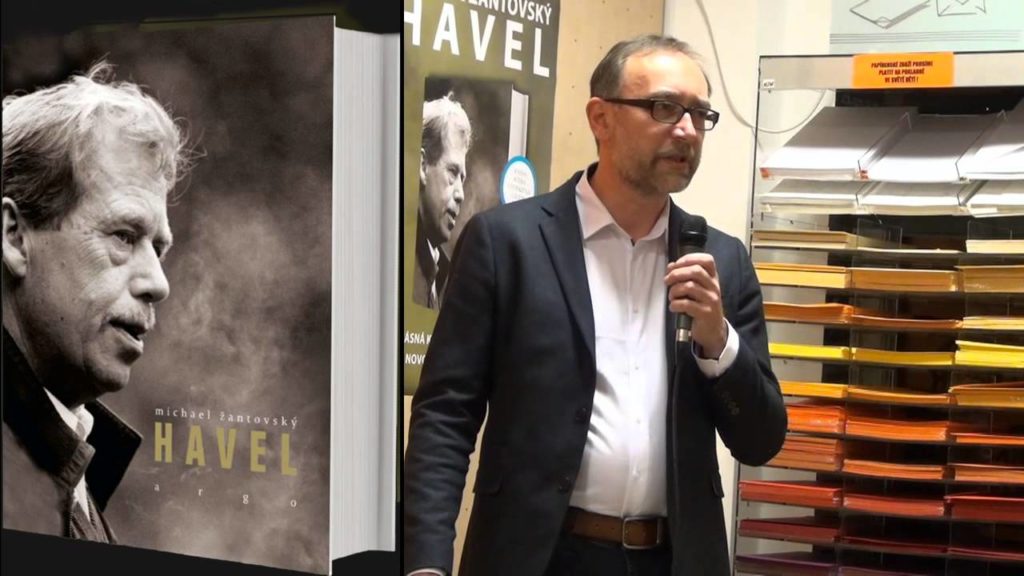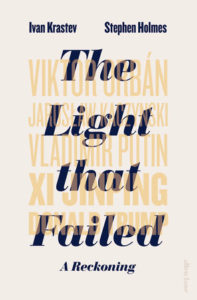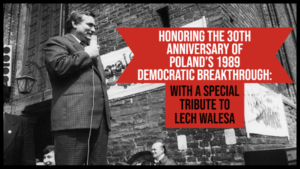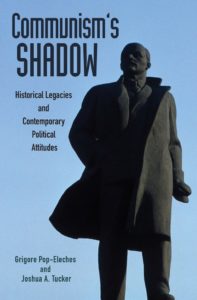
YouTube
Central and Eastern Europe’s transition to democracy has not been smooth. But there are grounds for hope, notes What would Vaclav Havel have made of post-1989 developments? she asked Michael Zantovsky (above), Mr. Havel’s biographer and longtime friend, for the Times:
Zantovsky, who has served as ambassador to Washington, Tel Aviv and London, and now heads Mr. Havel’s presidential library in Prague, was positive. Looking at Central Europe today, Mr. Havel “would almost certainly have observed that 30 years have passed and we are not dealing here with Socialist basket cases that would need every kind of support.” Some countries “are certainly struggling with some kind of internal problems,” even “slipping back according to some criteria of freedom, and tolerance, and democracy,” he said, diplomatically avoiding names.
“We have advanced to the same kind of mess as everybody else,” he chuckled. “It’s a strange measure of success. But it is a success of sorts.”
And there’s more to this story. The combination of these particular attitudinal legacies may help explain the resurgent illiberal populism in places such as Poland and Hungary today, they add.
Converts, Impostors, Appropriators
 In ‘The Light That Failed,’ Bulgarian political scientist Ivan Krastev and US law professor Stephen Holmes trace the story of how the post-1989 liberal dream became an illiberal nightmare through four parallel narratives, Mark Leonard, executive director of the European Council on Foreign Relations, writes for Prospect:
In ‘The Light That Failed,’ Bulgarian political scientist Ivan Krastev and US law professor Stephen Holmes trace the story of how the post-1989 liberal dream became an illiberal nightmare through four parallel narratives, Mark Leonard, executive director of the European Council on Foreign Relations, writes for Prospect:
Central Europeans were true believers who wanted to adopt the ends as well as the means of liberal democracy (Converts). …Russia, by contrast, chose to fake westernisation (Impostors) by pretending to introduce democracy and free markets when it was weak—only to later raise a mirror to the west and weaponise its hypocrisy. The Chinese path (Appropriation) was to borrow western technology while protecting the nature of the Chinese regime and culture. As China rose it ended the “age of imitation” by removing the idea that there is no alternative to western liberal democracy.
But it seems odd to blame the “resentment at liberal democracy’s canonical status and the politics of imitation” for the illiberal turn in Central Europe at a time when similar realignments are underway in many other countries with vastly different histories, including the United States and the United Kingdom, says Dalibor Rohac, a resident scholar at the American Enterprise Institute in Washington DC.
 Notwithstanding the genuine differences in voting patterns in the former West and East Germany, which do suggest a higher degree of receptivity of post-communist societies to some forms of political extremism, there is little that is distinctly “post-communist” about political realignments driven by the increased salience of immigration and national identity, he writes for The American Interest.
Notwithstanding the genuine differences in voting patterns in the former West and East Germany, which do suggest a higher degree of receptivity of post-communist societies to some forms of political extremism, there is little that is distinctly “post-communist” about political realignments driven by the increased salience of immigration and national identity, he writes for The American Interest.
The National Endowment for Democracy hosts a conference commemorating The 30th Anniversary of the Historic Democratic Transitions in Poland and Central Europe. RSVP

 The legacies of communist rule did not end with the fall of the Berlin Wall in 1989, say analysts
The legacies of communist rule did not end with the fall of the Berlin Wall in 1989, say analysts 





